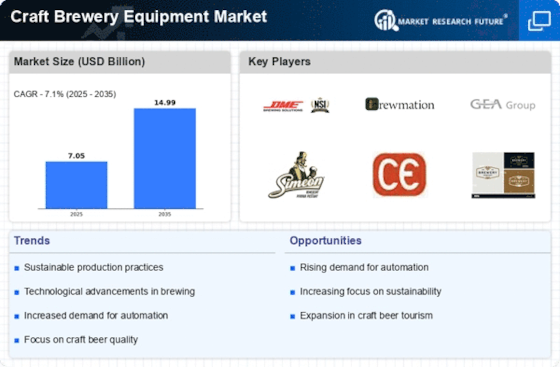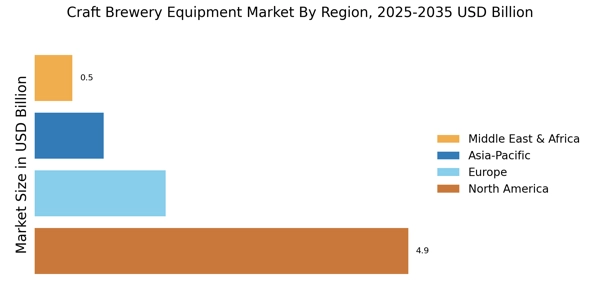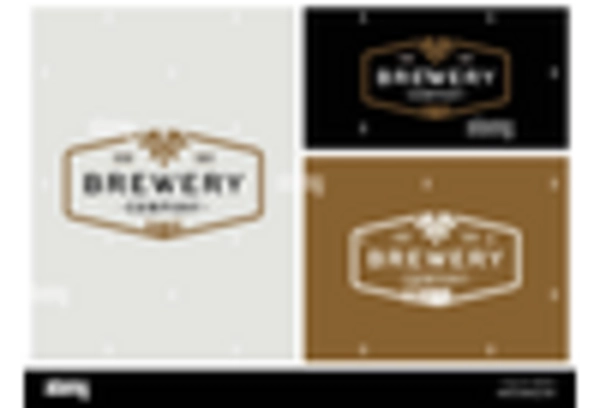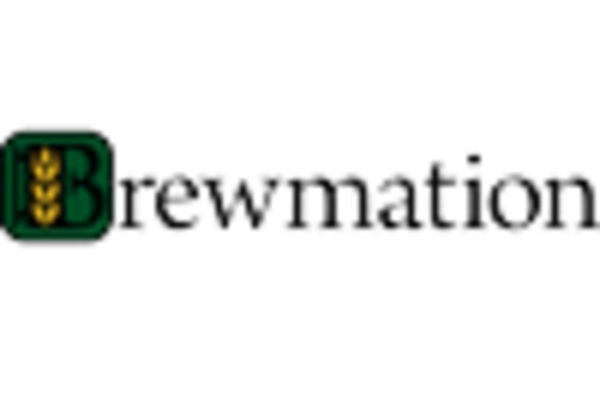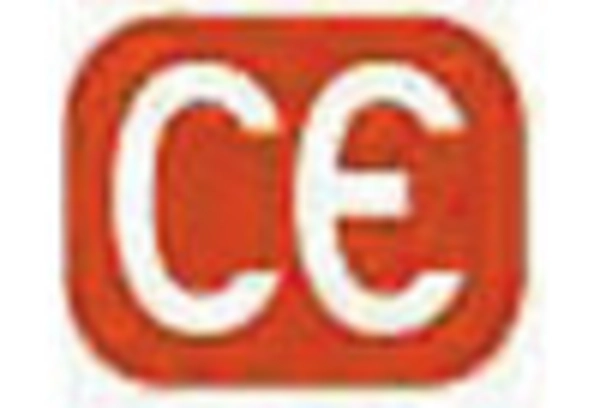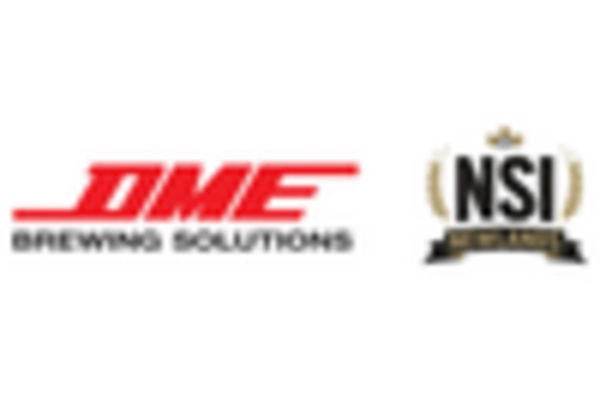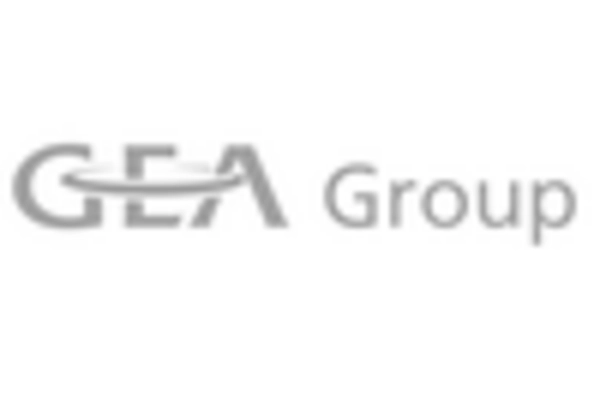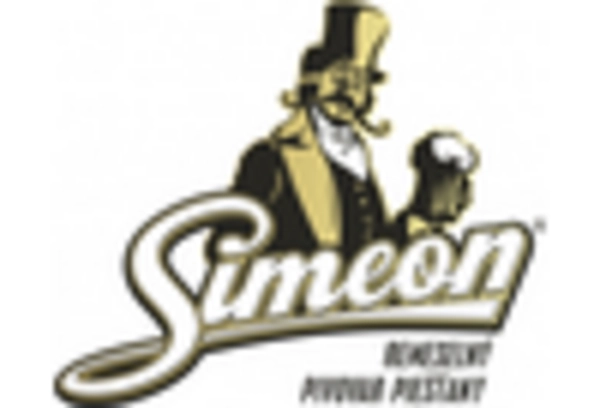Rising Craft Beer Popularity
The increasing popularity of craft beer is a primary driver for the Craft brewery Equipment Market. As consumers seek unique flavors and local products, the demand for craft breweries has surged. According to recent data, the craft beer segment has experienced a compound annual growth rate of approximately 10 percent over the past few years. This trend indicates a robust market for craft brewery equipment, as new breweries emerge to meet consumer preferences. The growth in craft beer consumption is not only fostering the establishment of new breweries but also encouraging existing ones to expand their operations. Consequently, the Craft Brewery Equipment Market is likely to see a corresponding rise in demand for brewing equipment, fermentation tanks, and other essential machinery.
Innovations in Brewing Technology
Technological advancements play a crucial role in shaping the Craft Brewery Equipment Market. Innovations such as automated brewing systems, advanced fermentation technologies, and energy-efficient equipment are becoming increasingly prevalent. These technologies not only enhance the brewing process but also improve product quality and consistency. For instance, the introduction of smart brewing systems allows brewers to monitor and control various parameters remotely, leading to optimized production. The market for brewing equipment is projected to grow as breweries invest in these innovations to remain competitive. Furthermore, the integration of sustainable practices within these technologies is likely to attract environmentally conscious consumers, further driving the Craft Brewery Equipment Market.
Regulatory Support for Craft Breweries
Regulatory frameworks that support the establishment and operation of craft breweries are emerging as a significant driver for the Craft Brewery Equipment Market. Many regions are implementing policies that reduce barriers to entry for new breweries, such as lower licensing fees and simplified regulations. This supportive environment encourages entrepreneurs to enter the craft beer market, leading to an increase in the number of breweries. As new establishments open, the demand for brewing equipment rises correspondingly. Additionally, regulatory support often includes initiatives that promote local products, further enhancing the visibility and appeal of craft breweries. The Craft Brewery Equipment Market is likely to thrive as these favorable regulations continue to foster growth in the sector.
Consumer Demand for Quality and Variety
Consumer preferences are shifting towards high-quality and diverse beer options, which is a key driver for the Craft Brewery Equipment Market. As consumers become more discerning, they seek out unique flavors and artisanal products. This trend has prompted breweries to experiment with various ingredients and brewing techniques, leading to an increase in the production of specialty beers. Consequently, the demand for specialized brewing equipment has risen, as breweries require tools that allow for greater creativity and flexibility in their brewing processes. The Craft Brewery Equipment Market is likely to benefit from this trend, as breweries invest in equipment that supports innovation and caters to the evolving tastes of consumers.
Increased Investment in Craft Breweries
The Craft Brewery Equipment Market is experiencing a surge in investment, which serves as a significant driver for growth. Investors are increasingly recognizing the profitability of craft breweries, leading to a rise in funding for new and existing establishments. Reports indicate that venture capital and private equity investments in the craft beer sector have reached unprecedented levels, with millions of dollars being allocated to enhance production capabilities. This influx of capital enables breweries to acquire state-of-the-art equipment, thereby improving efficiency and product offerings. As more investors enter the market, the Craft Brewery Equipment Market is poised for expansion, with a growing number of breweries seeking advanced equipment to meet rising consumer demand.


